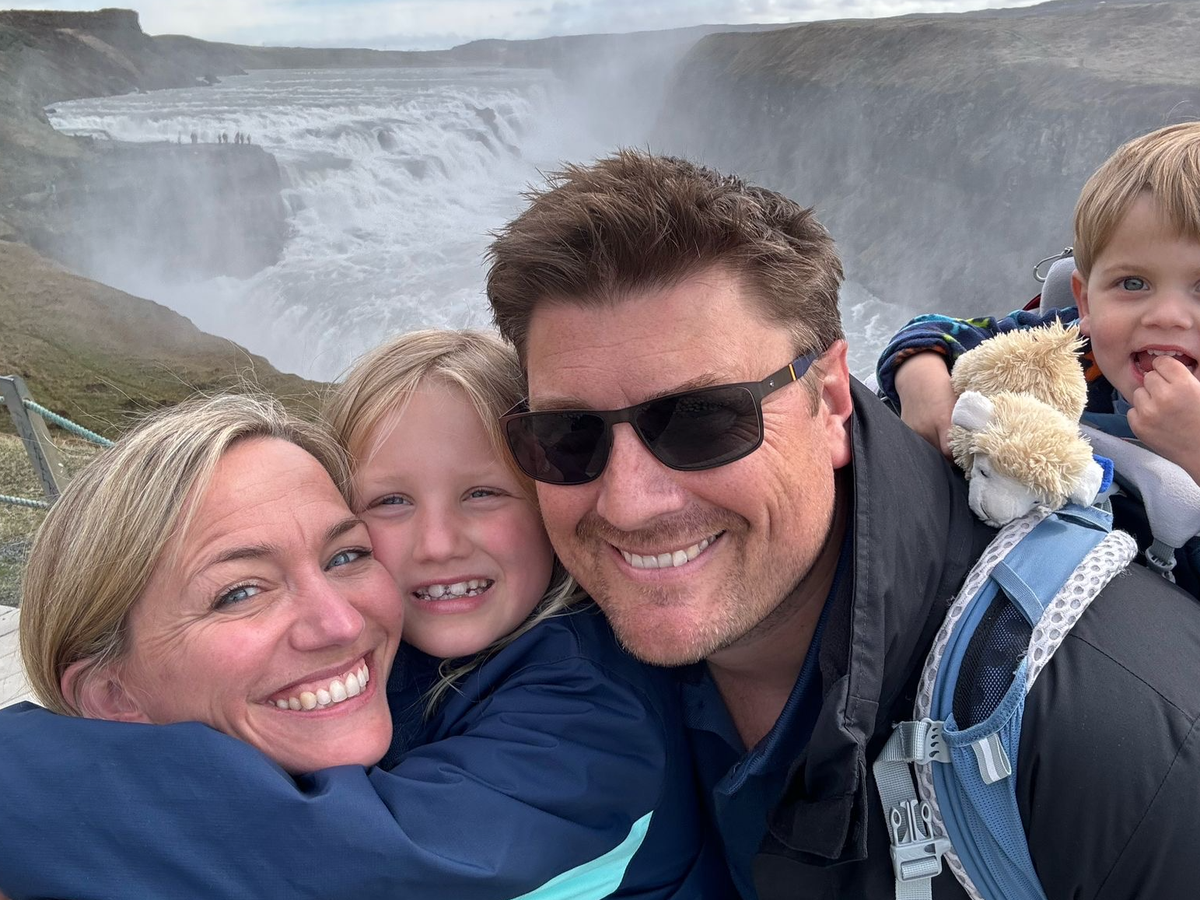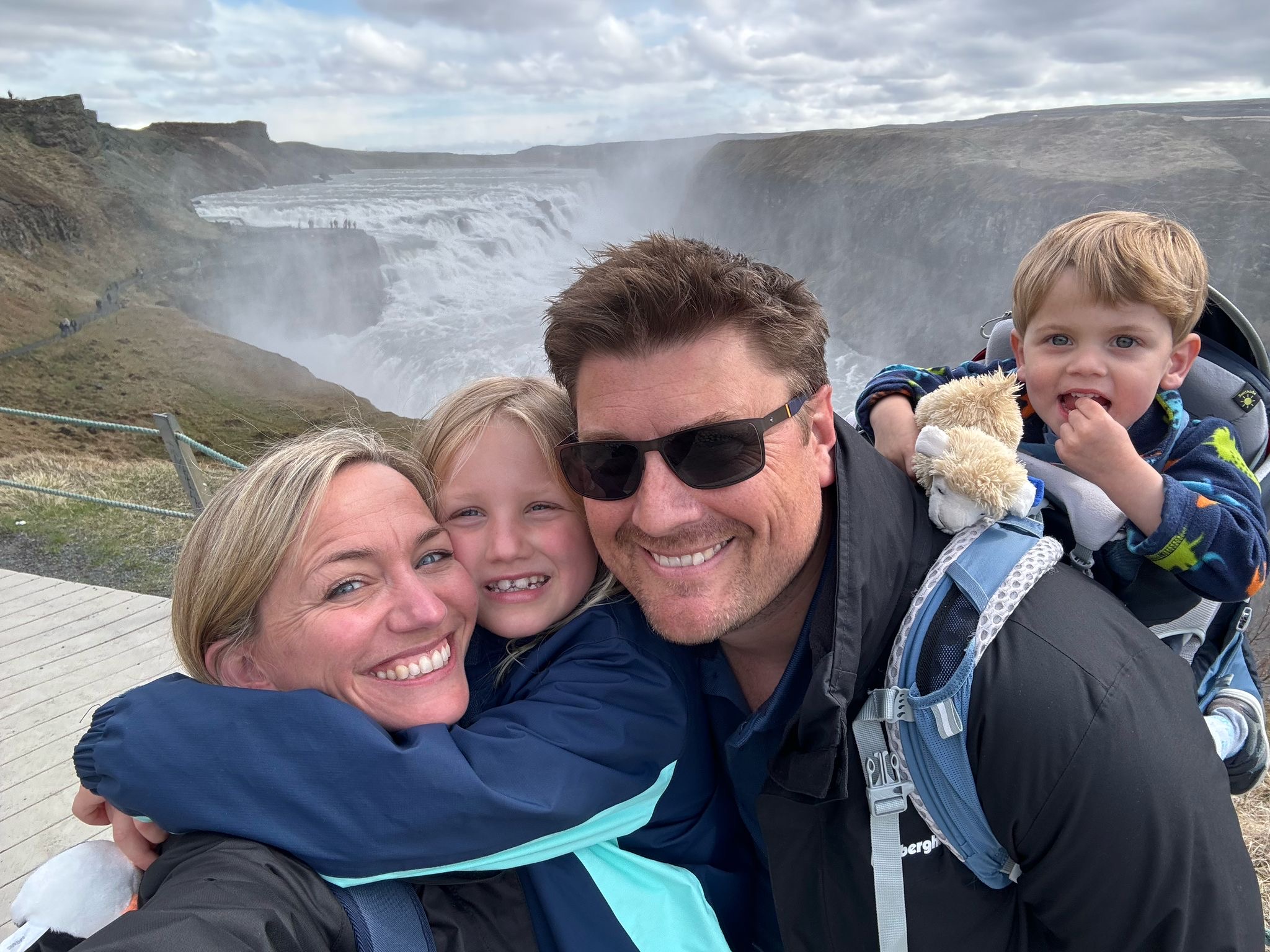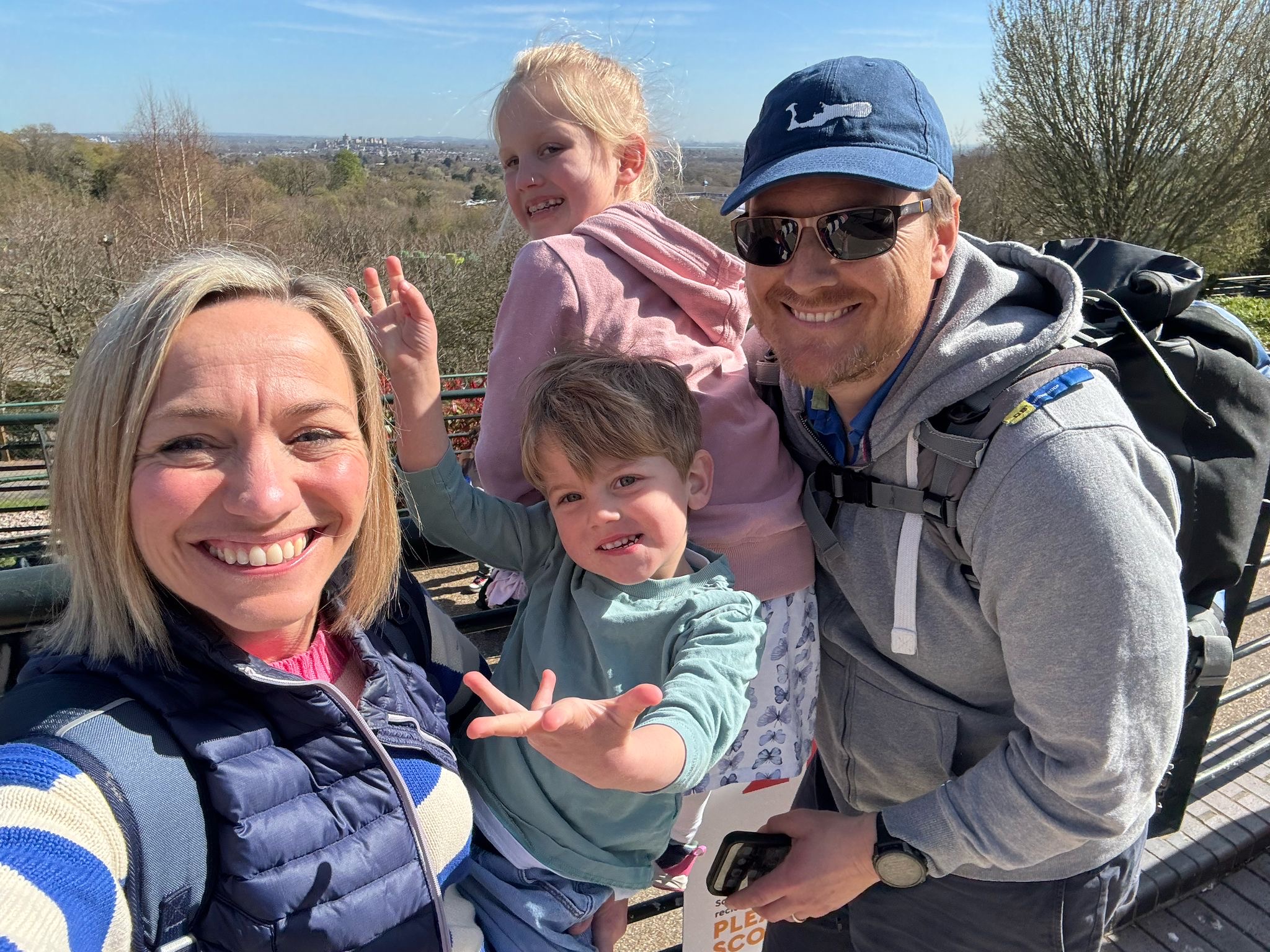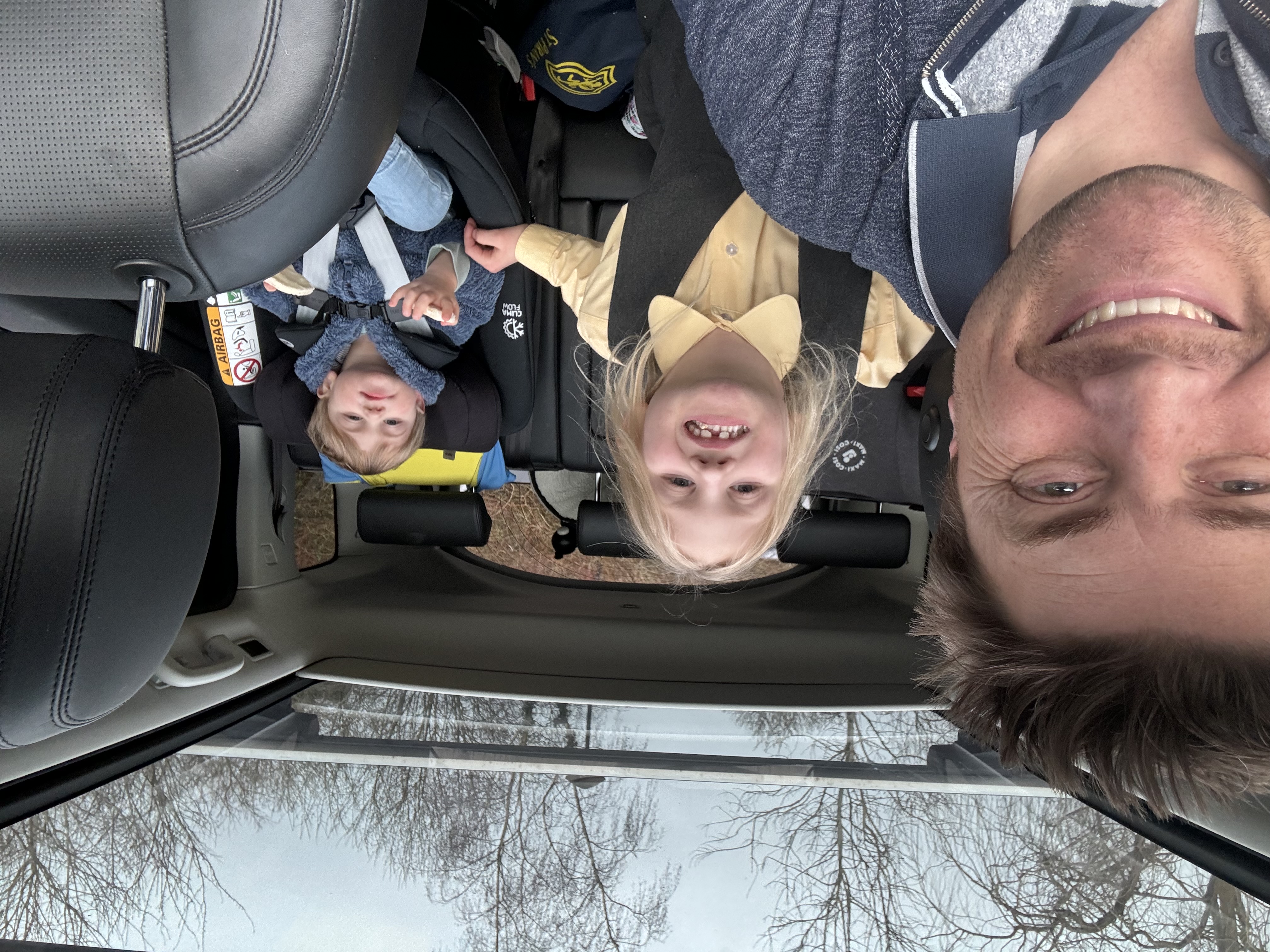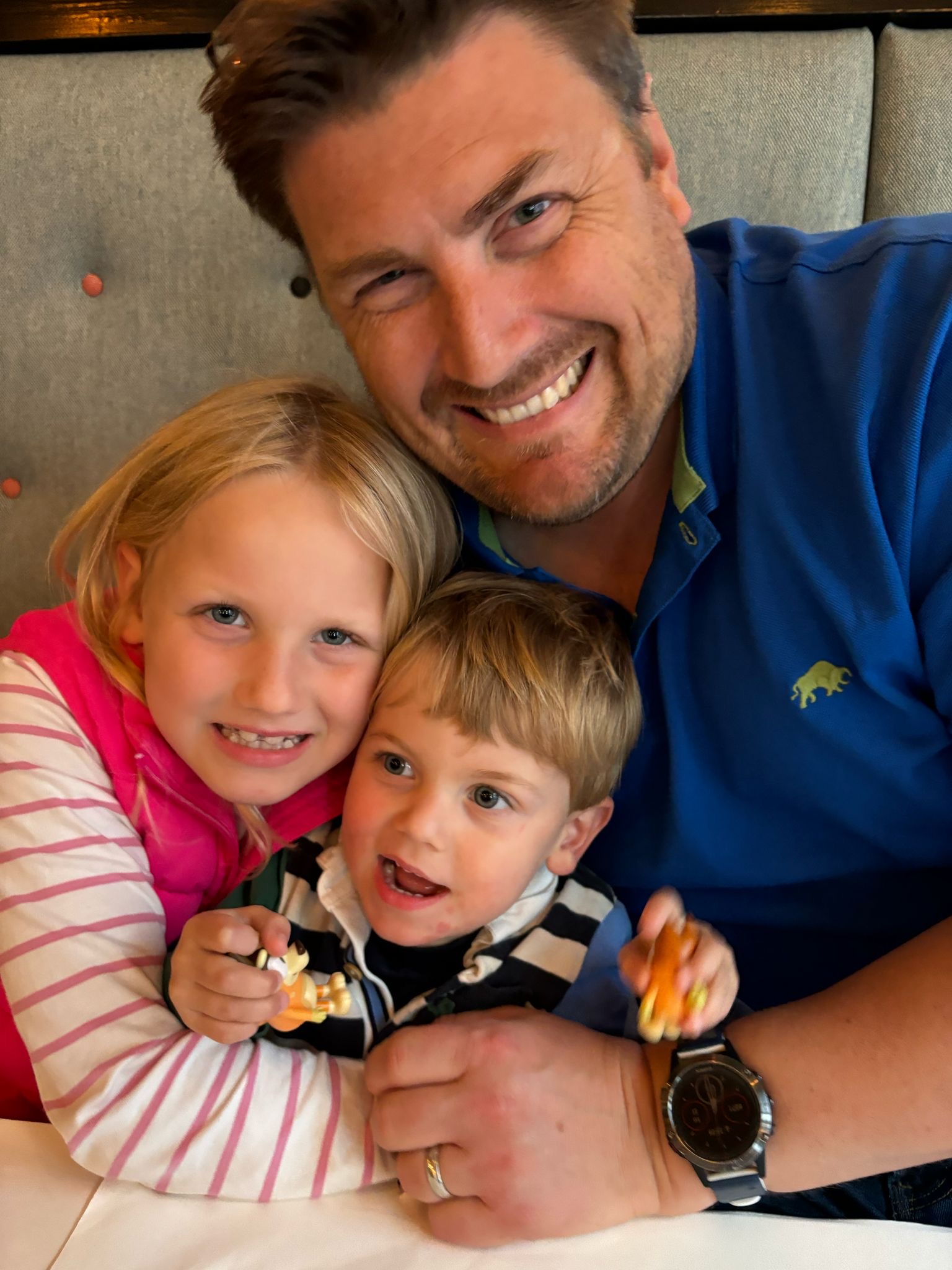- S
- R
- N
2025 has felt like a long year already.
In January, at age 44, I was diagnosed with advanced, Stage 4, aggressive prostate cancer. It had already spread to my bones and lymph nodes.
It still feels surreal to write that. Telling people feels a little scary, as if it makes it more real. But it is real, and I am fighting it with everything I have. I don’t like to lose and I can be very stubborn.
Over Christmas 2024, I developed some bloating. Nothing dramatic and not unusual for Christmas day, except it was before lunch. This turned to severe abdominal pain and then urgent surgery to recover my kidney function. I am grateful for the incredible and prompt care I received as my kidney function was dangerously low.
Then, after several more intrusive procedures, Anna and I found ourselves sitting across from a urologist hearing the words: advanced, aggressive prostate cancer. That had spread to my bones and lymph nodes. Stage 4 cancer. Even now, it feels surreal to recall that moment. It feels like it should be a mistake.
The consultant explained that my cancer isn’t “curable”, but it could be managed as a chronic condition for as long as treatments work.
He reassured Anna that "it would be ok," but that felt jarringly disconnected from the gravity of what we'd just been told.
I had no idea prostate cancer could happen at 44.
Given the stage of spread, it’s likely I had it at 43.
There were no warning signs. No symptoms.
I wasn't in a high-risk group and had never been advised to get screened.
My tumour had grown to the point where it constricted both of my ureters, causing the kidney issues that prompted investigation. Thankfully, I guess.
I lost my mum to cancer in 2007. I've repeatedly been told her cancer wasn’t genetic, so early screening was never really on my radar – but I tried to avoid the obvious carcinogens.
I’m currently halfway through a six-cycle chemotherapy plan and, so far, I’m responding well. After chemo, I’ll continue hormone therapy and likely require other treatments as the cancer adapts. There are more tools in the toolbox — but I would like there to be more.
"Not curable" is also a hard phrase to sit with. I am used to trying to solve problems. No matter how hard I have to work.
So, I’ve taken to saying: "not curable by currently accepted medical techniques."
Ogier has been phenomenal. We have been cocooned, shielded from daily pressures, given the space to focus on health and family. Anna is amazing.
We have been able to go deep into research, overhauling our lifestyle and implementing complementary therapies for every marginal gain we can get.
New treatments — and repurposed older ones — are being explored all the time. But many promising options lack the funding or clinical trials needed to become mainstream.
Many complementary therapies that show potential in anecdotal cases but remain unsupported by current protocols for the same reason: lack of research funding.
The cancer will adapt at some point, it’s relentless, but so are we.
One man dies of prostate cancer every hour in the UK.
That’s one every hour too many.
I don’t intend to be one of those statistics.
I have two young children (aged 2 and 7 when I was diagnosed) and a lot more to give to them, and to Anna. I’m stubborn, and want to help change those statistics.
So, I intend to make a start on raising awareness, funding research, and supporting men facing the same diagnosis.
First up: the Tour de 4 in Glasgow on 7 September 2025.
This 56-mile charity ride is part of Sir Chris Hoy’s campaign following his own Stage 4 diagnosis. It’s about raising money for Prostate Cancer UK, and changing perceptions about what people with advanced cancer are capable of.
This message — that Stage 4 cancer doesn't define your limits — resonates deeply with Anna and me. I will be back at work and solving more problems.
During treatment my focus is on family, health and fitness and a goal will be to ride the Tour de 4 with my brother Andy. I hope it will be just the first of many challenges.
How you can help:
If you’re able to donate, your support will fund vital research, improve early detection, and develop new treatment options — not just for me, but for all the dads, grandads, uncles, brothers, and mates out there.
And if you can’t donate right now, please consider sharing this page or having a conversation with someone you care about about early screening. Awareness can save lives too.
I'll post updates here as we take on more events and challenges.
Thank you for reading, thank you for your support — and thank you for helping to give more time, more treatment, and more hope.
— Jez
Organizer
Prostate Cancer UK
Beneficiary
